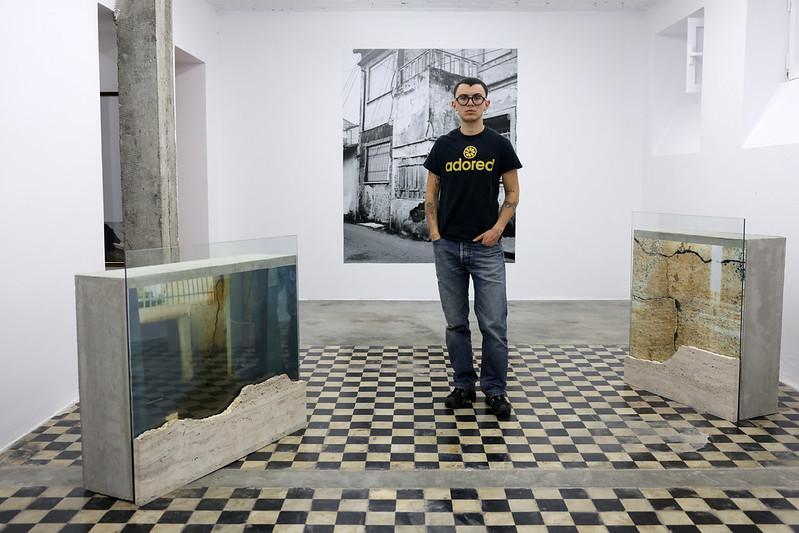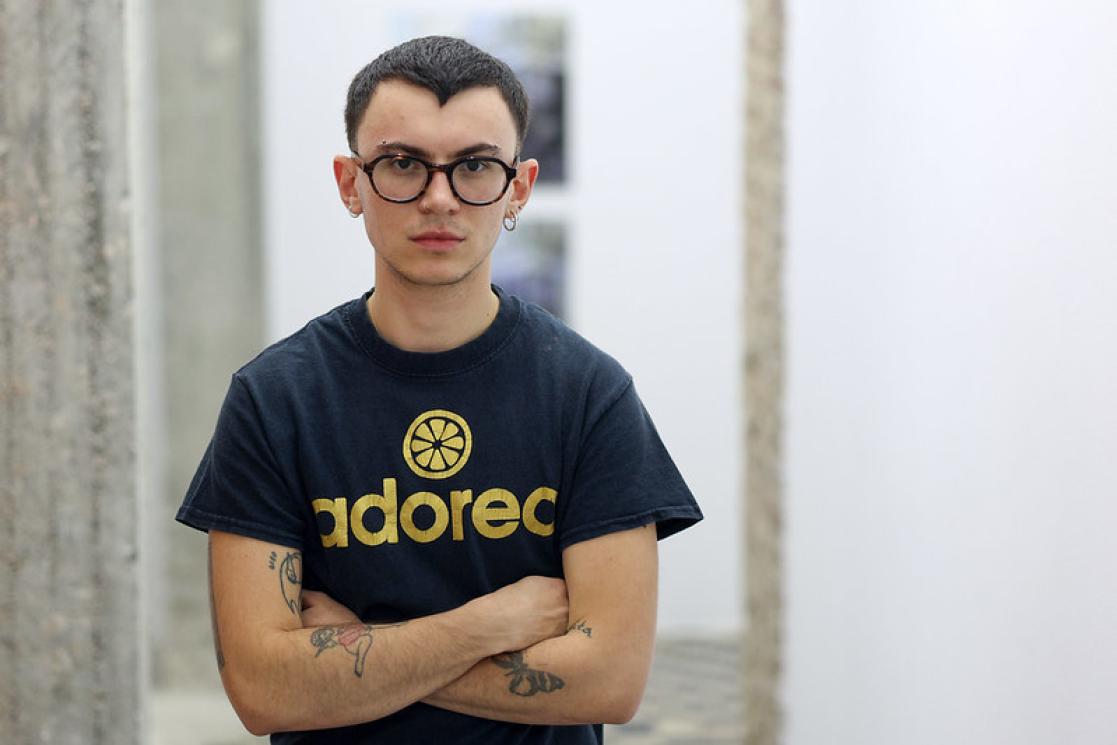Kairo Urovi: I started creating as I couldn't see myself pictured anywhere

A man’s silhouette shows a body in motion in an exhibition in Tirana, which combines a personal landscape and memories, playing and placing a body between presence and absence. Kairo Urovi, a visual artist of Albanian descent, born in Fano (Italy) and currently based in London, revolves his practice around the complexities of that statement. Of being born and raised in Italy, with a family originally from Shkoder and navigating life as a trans and queer individual. Through his work, Urovi interrogated narratives of belonging and displacement, using his personal experience as a lens for broader cultural reflection. In an ongoing project in Albania with Art Explora, Urovi documents a personal exploration of his journey back to his hometown, Shkoder — 13 years after his last visit and 4 years after his gender transition. What was once familiar now feels distant, as memories confront a shifting sense of self and place in his work “Stray Dog”. There are frictions between wanting to be seen and hiding as identity, belonging and place are renegotiated over time. Through a slow, deliberate photographic process, the work challenges fixed narratives of gender and queerness within a culturally charged context. “Stray Dog” is both a personal and political mapping of identity in transition, set against the backdrop of a landscape that mirrors this complexity. Urovi’s work has been featured in Paris Photo (2023) Bazament Art Space (2025) and Photo London (2025).

EU in Albania
How does the slogan ‘Creativity empowers us together’ resonate with you?
The slogan resonates with me, in the sense that, I think my work is not made only by me, I didn’t do it on my own. It comes always in conversation with other people. Creativity and being able to channel my energy into making something that has a meaning and can help someone, will strengthen these kinds of collective bonds. I do not believe things happen in a vacuum. The better we organize ourselves as communities and come together, the more impact we will have in the long term. And art is a great way of doing that. It helps on these messages we have to share.
Can creativity help to shape a world where everyone feels included and valued, regardless of their background or identity?
Yes. I think that's the point of creating. It's a way someone expresses themselves without feeling any kind of judgment. That's the premise of creativity- to make art that will impact someone, tell a story or provoke others to enact change. My work is inherently personal, it's about me and my story, my experience, being queer, being trans, coming from Albania, leaving Albania, coming back and dealing with these realities and these themes. The reason why I started making this work is that I saw very few people doing it. I couldn't see myself pictured anywhere. You don't hear many stories of trans people in Albania. The only trans man I came across was David Cuka – seeing him helped me in my journey. Speaking up and being visible can come at a very expensive cost. I started photographing because I wanted to open up a conversation. I want my story to reach people the same way David’s story reached me. Creativity helps you imagine different freedoms and different ways you can exist in the world.

EU in Albania
How do you see your creative work contributing to political and social change?
My exhibition “Somewhere I Am Still Arriving” at “Bazament” is all about my relationship with my grandma's house. It touches on the subjects of loss, displacement, of trying to put memories together, fragmented memories. There’s also a piece of work there that touches on my queer identity. My idea is that, if you make people think, if the work brings up questions, it can help enact some change. Some kind of spark. There are different ways through which creativity can do that. I think it's a tool, just like activism is a tool, visual arts are a tool that can provoke social and political change. Through “Stray Dog”, I tell something else, how I experience coming back to Albania after my transition. My family could see the way that I experienced the world through my images, and that helped them understand where I'm coming from. I have also had people come up to me, queer Albanian people or people from the Diaspora- and we talked about the importance of having agency to tell your story. So, the kind of visibility that comes with that, helps people understand and not judge this. It offers a different door to another possibility, because the main issue about people who are transphobic/homophobic, is that they cannot imagine that there's a different way of living beyond what their life is. And I am not trying to gain their respect or validation. I'm not asking for acceptance. I'm demanding to be respected and seen and valued.





